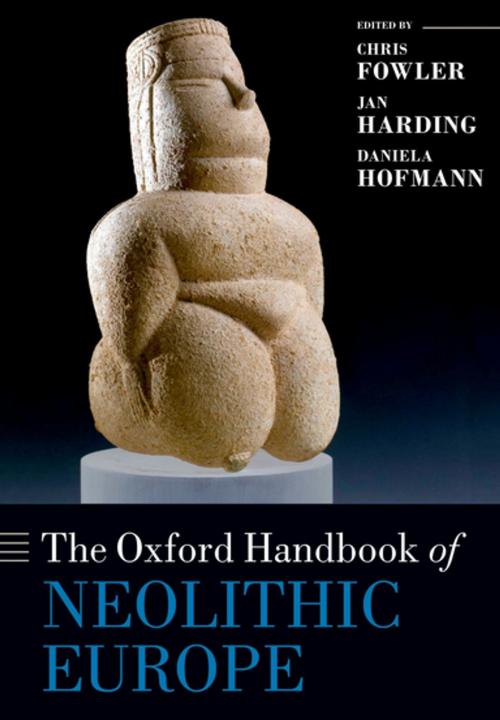The Oxford Handbook of Neolithic Europe
Nonfiction, Social & Cultural Studies, Social Science, Archaeology, History| Author: | ISBN: | 9780191666896 | |
| Publisher: | OUP Oxford | Publication: | March 26, 2015 |
| Imprint: | OUP Oxford | Language: | English |
| Author: | |
| ISBN: | 9780191666896 |
| Publisher: | OUP Oxford |
| Publication: | March 26, 2015 |
| Imprint: | OUP Oxford |
| Language: | English |
The Neolithic - a period in which the first sedentary agrarian communities were established across much of Europe - has been a key topic of archaeological research for over a century. However, the variety of evidence across Europe and the way research traditions in different countries (and languages) have developed makes it very difficult for both students and specialists to gain an overview of continent-wide trends. The Oxford Handbook of Neolithic Europe provides the first comprehensive, geographically extensive, thematic overview of the European Neolithic - from Iberia to Russia and from Norway to Malta - offering both a general introduction and a clear exploration of key issues and current debates surrounding evidence and interpretation. Chapters written by leading experts in the field examine topics such as the movement of plants, animals, ideas, and people (including recent trends in the application of genetics and isotope analyses); cultural change (from the first farming to the first metal artefacts); domestic architecture; subsistence; material culture; monuments; and burial and other treatments of the dead. In doing so, the volume also considers the history of research and sets out agendas and themes for future work in the field.
The Neolithic - a period in which the first sedentary agrarian communities were established across much of Europe - has been a key topic of archaeological research for over a century. However, the variety of evidence across Europe and the way research traditions in different countries (and languages) have developed makes it very difficult for both students and specialists to gain an overview of continent-wide trends. The Oxford Handbook of Neolithic Europe provides the first comprehensive, geographically extensive, thematic overview of the European Neolithic - from Iberia to Russia and from Norway to Malta - offering both a general introduction and a clear exploration of key issues and current debates surrounding evidence and interpretation. Chapters written by leading experts in the field examine topics such as the movement of plants, animals, ideas, and people (including recent trends in the application of genetics and isotope analyses); cultural change (from the first farming to the first metal artefacts); domestic architecture; subsistence; material culture; monuments; and burial and other treatments of the dead. In doing so, the volume also considers the history of research and sets out agendas and themes for future work in the field.















